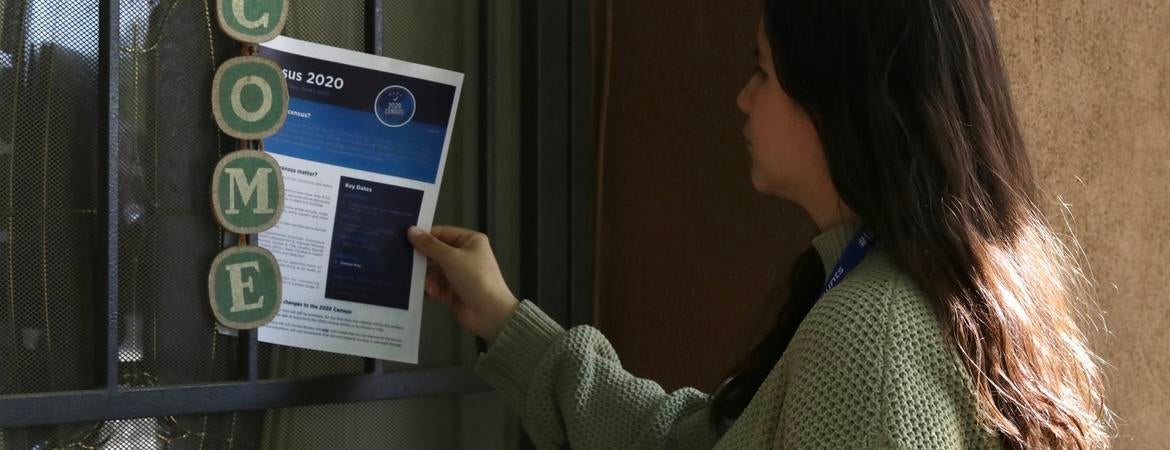Center for Social Innovation

Tamara Marquez didn’t know much about the U.S. census before last year, when she applied for a job as a canvasser with the Center for Community Action and Environmental Justice, a nonprofit organization based in Jurupa Valley.
Marquez, a senior at the University of California, Riverside, is forthcoming about why she wanted the job. Originally from Mexico City, she immigrated to the U.S. as a child and remains undocumented, which limits her employment opportunities
Between November and March, Marquez spent as many as six days per week canvassing in Riverside, later alternating door-to-door sessions with phone banking. At first, she said, talking to strangers was intimidating — especially when they didn’t want to hear what she had to say.
"But you learn pretty quickly to change your script depending on who you’re talking to,” Marquez said. “If you’re talking to a Spanish-speaking household, a family with kids, you might tell them about how the census can affect schools. You’re trying to convince people, so you start by feeling out the environment to figure out which strategies to implement.”
Accurate census representation is critical for UCR students because it informs funding for things like Pell Grants, the Federal Work-Study Program, and research activities, said Marlenee Blas.
Blas is the associate director of UCR’s Center for Social Innovation, and since October has served as director of UCR Counts, the university’s official Complete Count Committee. An initiative of the U.S. Census Bureau, the Complete Count Committees program is key to creating census awareness in communities nationwide through targeted outreach efforts.
UCR Counts is situated within a regional network that also incorporates two county governments and about 80 nonprofits, Blas said — all of which have united in an unprecedented effort to ensure the Inland Empire is accurately counted.
"One major challenge for county and government agencies is that there is little trust and therefore census messages aren’t so well-received,” Blas said. “This makes the role of nonprofit partners and educators — traditionally seen as trusted messengers — more important than ever.”
But Marquez said undocumented communities, in particular, are still likely to view participating in the census as a risk, namely because they fear public data about their communities being weaponized by law-enforcement agencies such as U.S. Immigration and Customs Enforcement, or ICE.
"Taking the census is a risk for undocumented people, but many just have to be informed about the benefits,” she said. “In my experience, the Hispanic households we’ve spoken with are the ones who are most ready to learn and be active. Immigrants already do so much for our communities, and the lack of a citizenship question allows immigrants not only to participate but to continue to help by making sure we all get the resources we need.”
The ability to “be seen” by their government is a large part of what makes the census appealing to many undocumented people, Marquez said.
"For undocumented communities, a lot of it is about more resources and more opportunities because we’re typically overlooked, and this is one of our few chances to actually count,” she said.